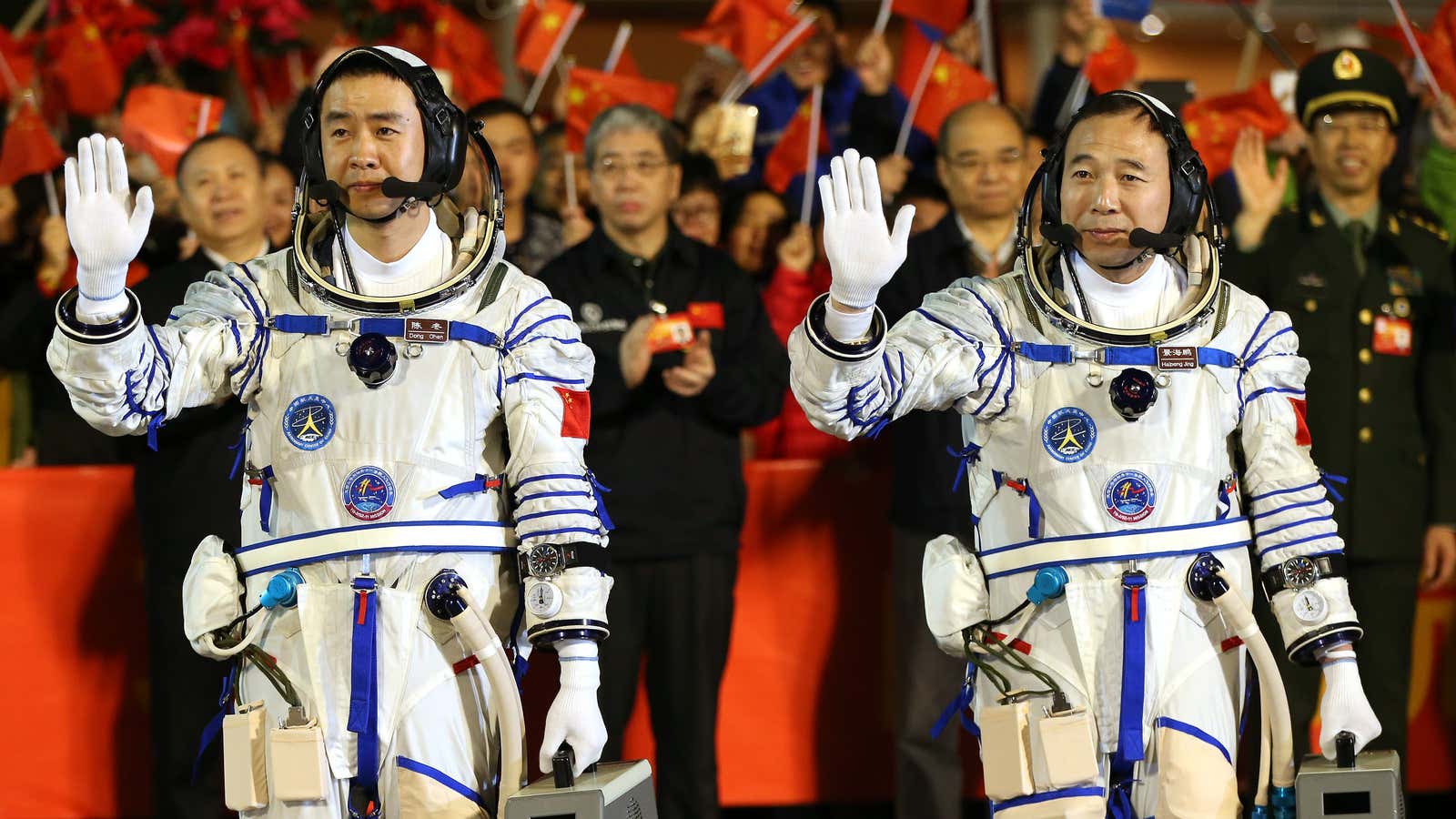China launched the Shenzhou-11 spacecraft, also known as “Heavenly Vessel-11,” into space around 7:30 am (link in Chinese) Beijing time on Oct.17 from the Jiuquan Satellite Launch Center. It is China’s sixth manned space mission and the country’s latest bid to become a new space superpower— after the International Space Station’s current agreements expire in 2024, Beijing hopes China may be the only country with a space station, state media reports (link in Chinese).
China is scheduled to launch 20 (link in Chinese) space missions throughout all of 2016, and already put the world’s first quantum satellite into orbit in August and launched the Tiangong-2 space lab in September.
Today’s launch sends two Chinese astronauts to dock at the Tiangong-2 space lab, also known as “Heavenly Palace.” Jing Haipeng, 50, and 38-year-old Chen Dong are set to spend the 30 days in the lab, doing medical and space experiments as well as serving as special correspondents for China’s state media Xinhua News.
It’s Jing’s third (link in Chinese) space mission after the 2008 Shenzhou-7 mission and 2012 Shenzhou-9 mission. If successful, the two astronauts will break the existing Chinese human spaceflight endurance record, by staying twice the time set by Shenzhou-10 in 2013. Russia’s Valeri Polyakov holds the all-time record for continuous time spent in space, at over 14 months.
China has been trying to catching up in space with Russia and the US in space since the 1970s, when China launched its first satellite. Beijing now spends around $6 billion a year on its space program, compared to the US’s $40 billion annually, according to the CNN, and is expected to catch up by 2020. Additionally, private Chinese companies like Landspace are launching rockets and satellites of their own, vying with western companies like SpaceX.
Netizens were thrilled about the launch on Weibo, China’s Twitter-esque social media platform, where the “Shenzhou-11 manned spacecraft launch” was viewed more than 10 million times. Some recalled China’s first manned spacecraft (links in Chinese, registration required) Shenzhou-5 launch in 2003, “The whole class sat in the classroom and watching the live broadcast, how time flies, it’s already the Shenzhou-11.”
An earlier version of this article incorrectly said that the International Space Station would be retired in 2024.
